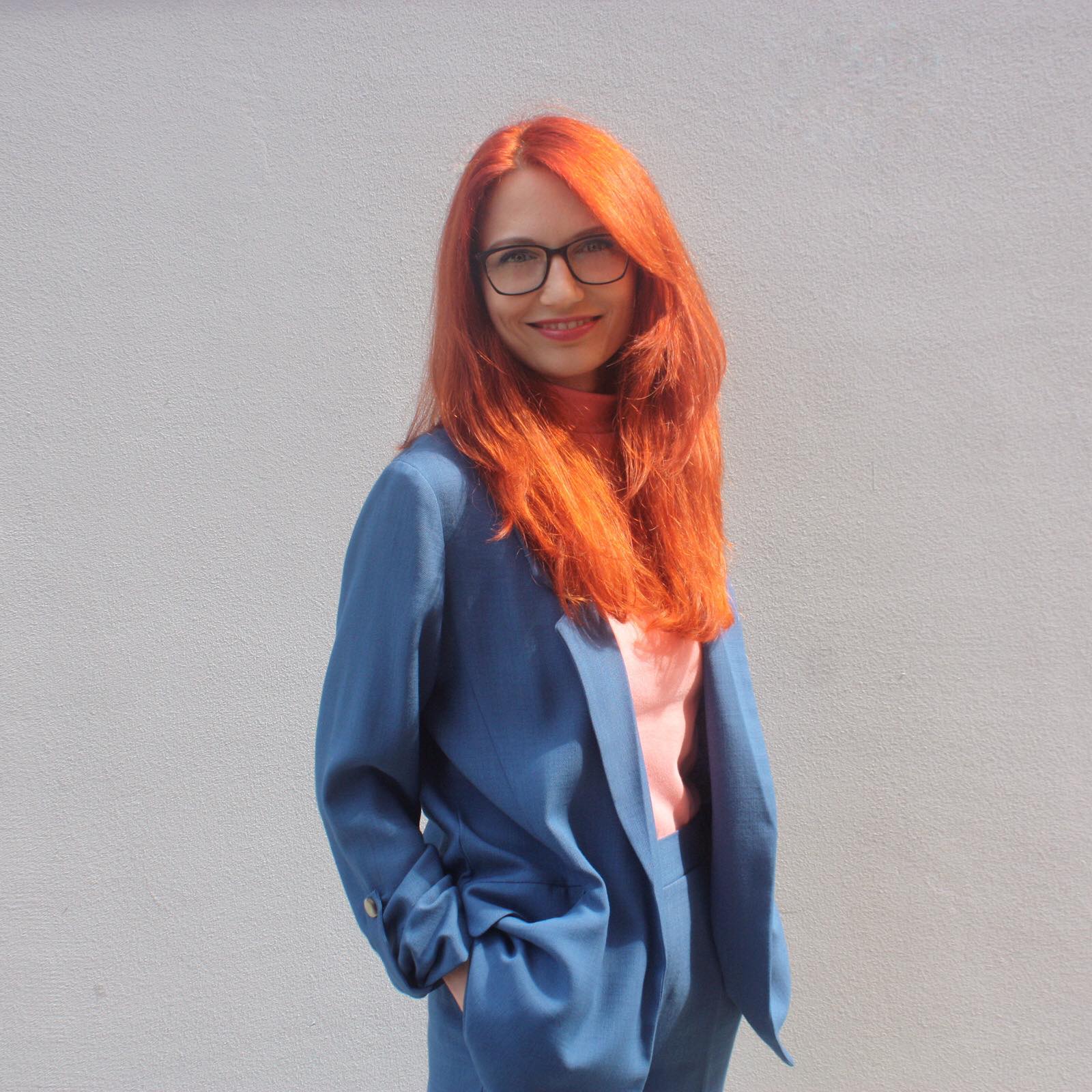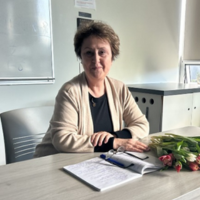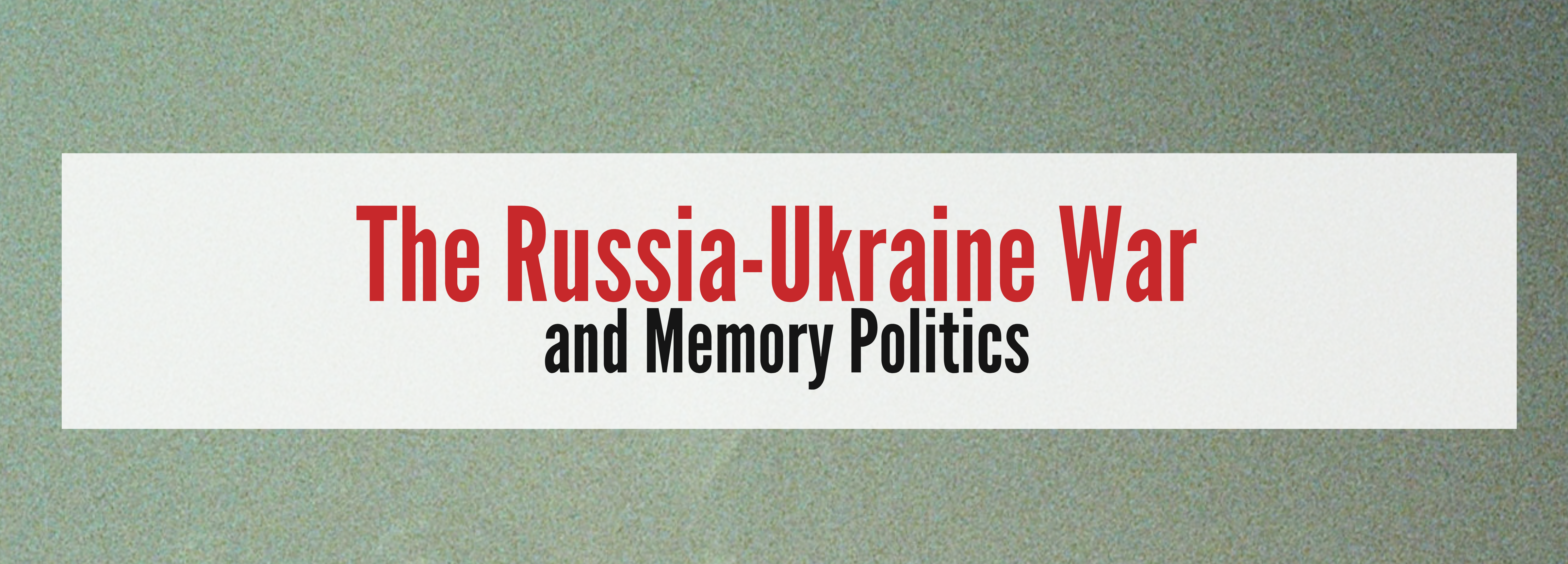The Battle of Narratives and Memories in the War of Russia against Ukraine
-
Nataliia Ivchyk, Political Science, Rivne State University; History, UBC; and John Grace Memorial Holocaust Historian in Residence at Green College; and Olena Morozova, Central, Eastern and Northern European Studies
Coach House, Green College, UBC and livestreamed
Wednesday, February 7, 5-6:30pm with reception to followin the series
The Russia-Ukraine War and Memory PoliticsPresent-day informational space is the sphere of "the battle of narratives", that is, the site of struggle for forming certain behavioral models in the recipient's mind. This talk will focus on Ukraine's "grand narrative" – the identity narrative – and the narratives of lower orders that underpin it. They will be considered with reference to Russia's counternarratives that aim to undermine the impact of Ukraine's narratives and foster imperial interpretational patterns in the recipients.
 Nataliia Ivchyk is a Holocaust scholar active in the field of public history and memory politics. She is an Associate Professor in the Department of Political Sciences at Rivne State University for the Humanities in her hometown of Rivne, Ukraine. Together with Maksym Gon (a history professor currently serving in the Ukrainian Army) and Petro Dolhanov, Nataliia co-founded and is a project manager of NGO Mnemonic, an organization devoted to citizenship education and the memory of the multicultural history of the Rivne region. In 2022, NGO Mnemonics was awarded the History of National Socialism prize by The Munich Documentation Center for its work in documenting the violent history of the twentieth century.
Nataliia Ivchyk is a Holocaust scholar active in the field of public history and memory politics. She is an Associate Professor in the Department of Political Sciences at Rivne State University for the Humanities in her hometown of Rivne, Ukraine. Together with Maksym Gon (a history professor currently serving in the Ukrainian Army) and Petro Dolhanov, Nataliia co-founded and is a project manager of NGO Mnemonic, an organization devoted to citizenship education and the memory of the multicultural history of the Rivne region. In 2022, NGO Mnemonics was awarded the History of National Socialism prize by The Munich Documentation Center for its work in documenting the violent history of the twentieth century.Nataliia's research examines gender and children's experience during the Holocaust as well as memory politics in Ukraine and East Central Europe. She has held a number of international fellowships. Her recent research projects include: "Disgraced Worlds: Jewish Families during the Holocaust" (European Holocaust Research Infrastructure, July 2022), "Gender and Everyday Life in Volhynia and Podolia Jewish Ghettos" (Prague Civil Society Center and Charles University in Prague, Czech Republic and the Leibniz Institute for East and Southeast European Studies, Germany, 2021) "Life and Agony of the Jews in the Rivne Ghetto: Reconstructing Women's Experiences" (Yad Vashem, Israel, 2018) and "Ghettos in the General District of Volhynia and Podolia in Memories of Jewish Victims and Neighbors" (United States Holocaust Memorial Museum, 2017-18). Her most recent publications include monographs titled Insulted Otherness: Ethno-Confessional Policy of the Russian Empire in Right-Bank Ukraine, 1850-1880 and The Town of Memory – the Town of Oblivion: the Palimpsests of the Memorial Landscape of Rivne (as a co-author), which addresses the gendered aspect of the symbolic space of Rivne.
 Olena Morozova has a DrSc (Higher Doctorate) in Philology. She is a Professor at the Department of English Philology and Foreign Language Teaching Methods of V. N. Karazin Kharkiv National University, Ukraine, and as an Assistant Professor at the Department of Central, Eastern and Northern European Studies at the University of British Columbia. Research spheres: cognitive linguistics, discourse studies, ecolinguistics, multimodal linguistics, media linguistics, political linguistics, deception and manipulation. Her current research is aimed at exposing the mechanisms of deception and manipulation in public spheres in the time of Russia's war against Ukraine. Author of 1 monograph, 11 chapters in collective volumes, 67 papers in peer reviewed journals, 1 textbook and 16 study guides. Member of the editorial boards of 3 journals. Research advisor of 8 postgraduate students who have obtained their Ph.D. degree.
Olena Morozova has a DrSc (Higher Doctorate) in Philology. She is a Professor at the Department of English Philology and Foreign Language Teaching Methods of V. N. Karazin Kharkiv National University, Ukraine, and as an Assistant Professor at the Department of Central, Eastern and Northern European Studies at the University of British Columbia. Research spheres: cognitive linguistics, discourse studies, ecolinguistics, multimodal linguistics, media linguistics, political linguistics, deception and manipulation. Her current research is aimed at exposing the mechanisms of deception and manipulation in public spheres in the time of Russia's war against Ukraine. Author of 1 monograph, 11 chapters in collective volumes, 67 papers in peer reviewed journals, 1 textbook and 16 study guides. Member of the editorial boards of 3 journals. Research advisor of 8 postgraduate students who have obtained their Ph.D. degree.
Russia's full-scale invasion of Ukraine in February 2022 has led to a heretofore unseen surge of international interest in Ukraine. A part of the Soviet Union for over 70 years, Ukraine achieved its independence in 1991, starting the process of its democratization. Over the next three decades, Ukrainians have brought about significant political and societal changes in their country. But what is the Ukrainian memory of the Soviet past? What was the role of civic society in re-shaping Ukrainian memory of its Soviet past? How do Russians view the Soviet period of Ukraine? And now, after Russia’s two invasions of Ukraine and the tragic wars that have ensued, what changes are taking place in the collective culture of remembering among the people of Ukraine?
This series of lectures series thus aims to consider how conflicts are shaped by memory, and how they affect the memory and psyche of a people under attack.
Series Conveners: Nataliia Ivchyk, Political Sciences, Rivne State University and John Grace Memorial Holocaust Historian in Residence at Green College; and Richard Menkis, History

-
Unless otherwise noted, all of our lectures are free to attend and do not require registration.
-
Olena Morozova, Central, Eastern and Northern European Studies
Coach House, Green College, UBC and livestreamed
Wednesday, February 7, 5-6:30pm with reception to followin the series
The Russia-Ukraine War and Memory Politics
Custom Lecture Fields
|